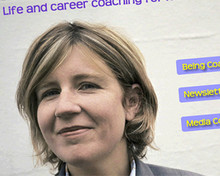
The reason for this is that the commissioning editor will have their own ideas about what they want to see in the piece. They'll know how much space they have available and how many words they need you to write.
Start by reading several copies of the section you're pitching to so you get a sense of what they cover and where there might be opportunities for you. Believe it or not, many people pitch to sections they've never read. If you want to hit a target, don't just take aim and fire - do your research first.
Think of an idea for the slot you're targeting - something original that your specialist knowledge will make you the best person to write about. All publications have writing staff - so why would they pay you to write for them instead?
Submitting Your Pitch
Call the publication and find out the best person to send your idea to. You can glean information like this from websites and directories, but the media has a high staff turnover so it's essential to keep checking that you are approaching the right person.
Most editors prefer to receive pitches by email. On bigger publications, editors receive many pitches every day and some won't even read them if they don't recognise the writer's name.
Write your pitch and send it. Describe the idea in a few paragraphs (around 100 words) and give some details of your professional background and experience (i.e why they should ask you to write this). The idea is more important than your writing experience, but do emphasise any experience that you have.
What's next after you've submitted your pitch?
Responses vary enormously. Sometimes you will hear back fairly quickly - within a day or two if it's a daily newspaper, perhaps a few weeks if it's a monthly magazine. If you don't hear anything you can take it that they're not interested or the email hasn't been read. The editor will not have time to give you feedback if your idea is not suitable.
If you don't hear anything, you can always follow up with a phone call or a short email. If an idea is time sensitive, some writers phone up soon after they've sent the pitch. They might say 'My email's been playing up so I'm just checking you received this' but really this is just an excuse to get closer to the editor and start to build up a relationship.
Another follow up could be to pitch the same idea to another publication, tweaking it to make it relevant to the new recipient.
Don't call us…
Pitches are similar to press releases in that you do need to be sending them consistently to build up a profile and eventually have one accepted. Even experienced writers say they have a hit rate of only 1 in 10 pitches getting commissioned, so don't despair if you are pitching stuff and getting no response. Your hit rate should in theory be much higher if you target lower profile publications. But ultimately it is a numbers game, sugared with a teaspoon of luck, and persistence will lead to success.
Finally, tweet or not to tweet?
By all means follow editors on Twitter to see what they're interested in and hopefully start to build a relationship. Twitter can be great for gaining access to people who are unreachable by other means. But be aware that if you choose to pitch via Twitter with a public @, then many people will be able to see what you've pitched. And if you get a 'no', a public rejection isn't at all nice. Maybe it's better to start chatting via Twitter, but take your pitches into the privacy of DMs or email. The difficult part will be crafting a good pitch in 140 characters...
Joanne Mallon, who founded the online networking group for Women in Media, is a freelance journalist and specialist life and career coach for people in media. She writes a monthly newsletter containing special offers and tips on media jobs which is available free from here and she blogs here. A former producer for GMTV and This Morning, she has written for The Guardian and Daily Express and now freelances for a variety of clients including AOL's parenting site ParentDish.co.uk. These pieces have previously appeared on her own site, with slight updates here.
Free daily newsletter
If you like our news and feature articles, you can sign up to receive our free daily (Mon-Fri) email newsletter (mobile friendly).









